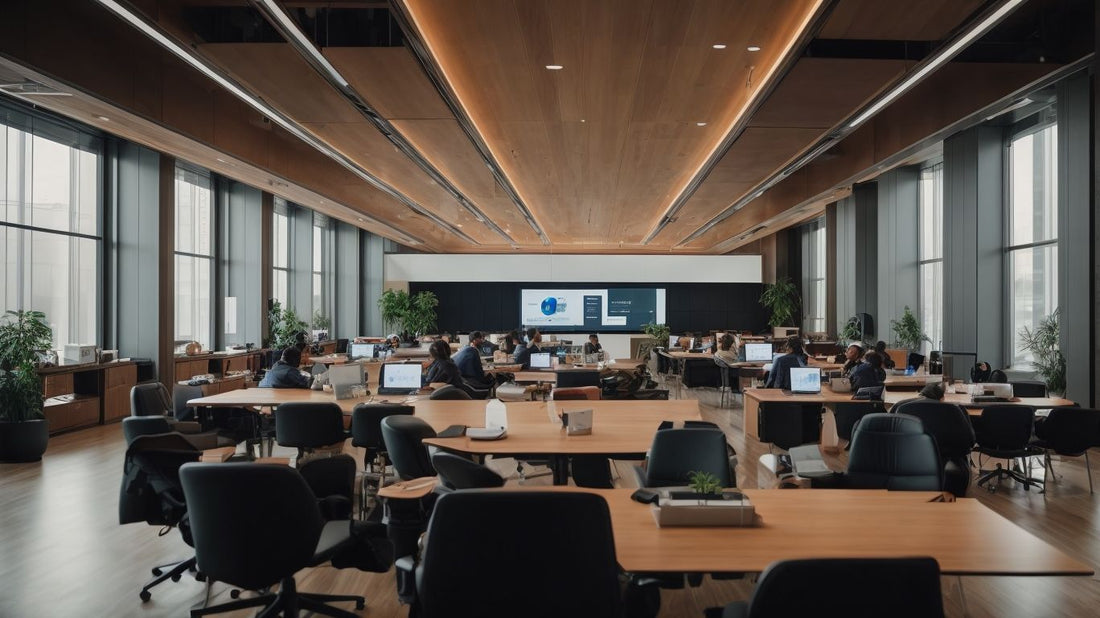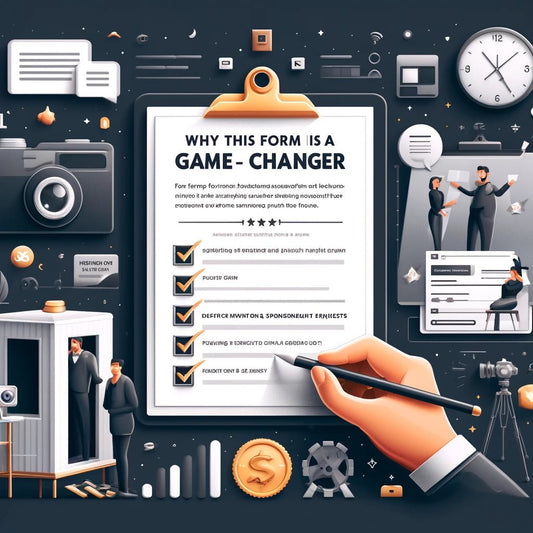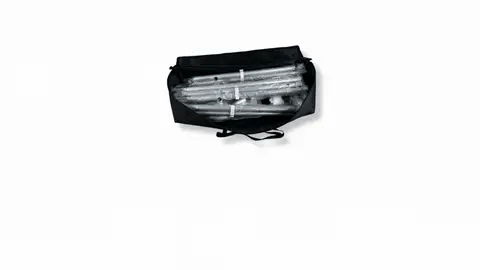
Efficient Corporate Event Logistics: The Key to Successful Business Events
Share
.jpg)
Corporate events play a crucial role in the business world, serving as platforms for networking, brand promotion, and knowledge-sharing. The success of these events relies heavily on effective event logistics.
Event logistics refers to the strategic planning, coordination, and management of various operational aspects to ensure the smooth execution of an event. In the context of corporate events, logistics encompass vital elements such as venue selection, transportation and accommodation arrangements, catering services, audio-visual equipment setup, event registration, security measures, and more.
The significance of event logistics in corporate events cannot be overstated. It directly impacts the attendee experience, the overall event flow, and the achievement of event objectives. Well-executed logistics ensure that everything runs seamlessly, creating a positive and memorable event experience for attendees and stakeholders.
Organizing corporate event logistics involves several key factors that need to be carefully considered. These include selecting the right venue that aligns with the event's purpose and requirements, arranging transportation and accommodation for attendees, providing quality catering and food services, setting up audio-visual equipment and technology, managing event registrations and attendee information, and implementing security and safety measures.
However, corporate event logistics also presents various challenges. Budget constraints, tight timelines, coordination with multiple stakeholders, and unforeseen circumstances require meticulous planning, coordination, and contingency plans.
To overcome these challenges and ensure successful corporate event logistics, several best practices can be followed. Creating a detailed event plan and schedule, collaborating with experienced event professionals, maintaining regular communication and updates, testing and verifying all logistics components, and continuously evaluating and improving processes are essential steps in achieving effective event logistics.
By prioritizing and meticulously managing corporate event logistics, businesses can orchestrate seamless and impactful events that leave a lasting impression on attendees and contribute to the overall success of their business objectives.
What Are Corporate Events?
Corporate events are organized gatherings that are tailored for businesses and their employees. They are specifically designed to serve various purposes such as team building, networking, training, and celebrating achievements. These events can take many forms, including conferences, seminars, trade shows, product launches, and award ceremonies. Corporate events provide valuable opportunities for companies to showcase their products or services, engage with clients, and strengthen internal relationships. They require meticulous planning to ensure logistics such as venue selection, catering, transportation, and audiovisual support are well-coordinated. Corporate events often have specific goals and objectives, such as educating attendees, fostering collaboration, or generating leads.
What are corporate events? At a recent corporate event, a multinational company organized an innovation summit to spark creativity and collaboration among its employees. The event featured keynote speeches from industry leaders, interactive workshops, and networking sessions. Through this event, employees had the chance to share ideas, learn from experts, and build meaningful connections across different departments and regions. This resulted in an influx of innovative proposals and strengthened teamwork, leading to significant improvements and breakthroughs within the company. The success of the event showcased the power of corporate events in driving growth and fostering a culture of innovation.
What is the Purpose of Corporate Events?
The purpose of corporate events is to fulfill various objectives related to business. These events serve as a platform for networking, building relationships, and fostering partnerships with clients, customers, and stakeholders. Corporate events also aim to enhance brand visibility, promote products or services, and showcase company achievements. These events provide opportunities for professional development, knowledge-sharing, and team-building activities. By bringing together individuals from different backgrounds and industries, corporate events facilitate collaboration, innovation, and business growth. They play a vital role in creating a positive brand image, strengthening company culture, and ultimately contributing to the success of the organization. What is the Purpose of Corporate Events?
The Importance of Event Logistics in Corporate Events
Event logistics play a crucial role in the success of corporate events. Attention to detail and careful planning are essential to ensure that everything runs smoothly. From venue selection and transportation to managing suppliers and coordinating schedules, event logistics professionals recognize the importance of event logistics in corporate events and are responsible for the seamless execution of every aspect of an event. The impact of event logistics cannot be overstated as it affects factors such as attendee experience, branding, and overall event impact. In fact, a well-executed event logistics plan can leave a lasting positive impression on attendees and contribute significantly to the overall success of the event.
In 2007, Apple made history with the launch of the iPhone, showcasing the significance of event logistics in corporate events. The event logistics team meticulously planned every detail, incorporating the importance of event logistics in corporate events into the venue layout and the product unveiling. Their strategic approach resulted in an event that generated immense buzz and set a new standard for product launches. Apple's success can be attributed to the recognition of the importance of event logistics in corporate events, which led to a memorable and impactful event.
What is Event Logistics?
Event logistics refers to the planning, coordination, and management of various components necessary for a successful corporate event. What is Event Logistics? It involves tasks such as selecting the right venue, arranging transportation and accommodation, catering and food services, audio-visual equipment, event registration, security measures, and more. Event logistics is crucial in ensuring that all logistical aspects are well-organized and executed smoothly. It plays a vital role in delivering a seamless and memorable experience for attendees. Understanding and effectively managing event logistics helps companies achieve their event objectives, enhance attendee satisfaction, and ultimately contribute to the success of corporate events.
Why is Event Logistics Important for Corporate Events?
Why is Event Logistics Important for Corporate Events?
Proper event logistics management is crucial for the success of corporate events. It ensures that everything runs smoothly and efficiently, from venue selection to transportation, catering, technology, registration, and security. By incorporating the key elements of event logistics, companies can minimize risks, avoid delays, and create a positive experience for attendees. In addition, event logistics allows companies to showcase their professionalism, attention to detail, and commitment to delivering a seamless event. This plays a vital role in managing budget constraints, coordinating with multiple stakeholders, and handling unforeseen circumstances. Ultimately, event logistics is important for corporate events because it ensures a well-organized and memorable experience for all participants.
Key Factors in Organizing Corporate Event Logistics
Planning a successful corporate event requires meticulous attention to detail. In this section, we'll uncover the key factors that play a vital role in organizing corporate event logistics. From selecting the perfect venue to managing transportation and accommodation arrangements, we'll explore how each decision impacts the overall experience. We'll delve into the importance of catering and food services, audio-visual equipment and technology, event registration and attendee management, as well as security and safety measures. Let's dive in and discover the essential elements that make a corporate event a resounding success.Choosing the Right Venue
Choosing the Right Venue
Choosing the right venue is incredibly important when it comes to the success of corporate events. To ensure that you make the best decision, consider the following steps:
- Determine the event's purpose and objectives: Before finalizing a venue, it is essential to align it with the desired atmosphere and goals of the event.
- Consider the event size and capacity requirements: It is crucial for the venue to comfortably accommodate all the attendees, so be sure to take into account the number of people you expect.
- Assess the location and accessibility of the venue: The venue should be easily reachable and should provide adequate parking or transportation options for the convenience of the attendees.
- Check the amenities and facilities available: Look into the venue's amenities, such as audiovisual equipment, Wi-Fi, and breakout rooms, to ensure they meet the specific needs of the event.
- Factor in the budget and cost: It is imperative that the chosen venue fits within the allocated financial resources for the event, so carefully consider the budget and associated costs.
Transportation and Accommodation Arrangements
Transportation and accommodation arrangements are essential components in the successful organization of corporate events. These are some important factors to consider:
- Venue proximity: It is crucial to select a venue that is easily accessible and well-connected to transportation hubs, ensuring smooth travel for all attendees.
- Accommodation options: It is important to offer a variety of accommodations that cater to different budgets and preferences, including hotels, serviced apartments, and guest houses.
- Transportation services: Organize reliable transportation options, such as shuttles or private cars, to transfer attendees between airports, hotels, and event venues.
- Special needs: Take into account any special transportation requirements for attendees with disabilities or mobility challenges.
- Group bookings: Negotiate discounted rates with hotels and transportation providers for group bookings, maximizing cost savings.
By meticulously planning and organizing transportation and accommodation arrangements, you can ensure a seamless and enjoyable experience for all attendees.
Catering and Food Services
When it comes to catering and food services, attention to detail is crucial in ensuring a successful and enjoyable experience for attendees of corporate events. Here are some important factors to consider:
- Menu variety: Offer a diverse range of food options to accommodate different dietary preferences and restrictions.
- Quality and presentation: Partner with reputable catering services that prioritize high-quality ingredients and appealing food presentation.
- Timing and logistics: Coordinate with the catering team to ensure timely delivery and setup of food stations or plated meals.
- Staffing and service: Adequate staffing is essential for efficient food service and addressing any guest needs or inquiries.
- Beverages: Provide a selection of refreshments, including non-alcoholic options, to cater to different tastes.
- Allergen awareness: Clearly label food items and address potential allergen concerns to ensure the safety of all attendees.
- Sustainability: Prioritize eco-friendly practices, such as using biodegradable utensils and minimizing food waste.
Audio-Visual Equipment and Technology
When it comes to Audio-Visual Equipment and Technology in corporate events, attention to detail is crucial. To ensure a successful event, consider the following factors:
- Equipment selection: Choose the right audio-visual equipment, such as projectors, screens, and sound systems, based on the event requirements and venue size.
- Technical support: Have a team of experts available to set up and operate the equipment, troubleshoot any technical issues, and ensure a seamless experience.
- Compatibility: Ensure that all audio-visual components are compatible and properly integrated to avoid any compatibility issues during the event.
- Testing and rehearsals: Perform thorough testing of the equipment before the event and conduct rehearsals to ensure smooth operation and troubleshoot any potential problems.
- Technology advancements: Stay updated with the latest trends and advancements in Audio-Visual Technology to deliver a cutting-edge experience to attendees.
Remember, investing in high-quality Audio-Visual Equipment and professional support can significantly enhance the overall impact and success of corporate events.
Event Registration and Attendee Management
- Efficient Event Registration and Attendee Management: For successful corporate events, it is essential to prioritize effective event registration and attendee management.
- Seamless Integration with CRM: To streamline data management and communication, seamlessly integrate the registration system with your customer relationship management (CRM) software.
- Automated Confirmation and Communication: Enhance attendee experience by sending automated confirmation emails to registered participants and providing regular updates leading up to the event.
- Smooth Check-In and Badging: Ensure a seamless check-in process by organizing attendee lists, providing electronic or printed badges, and assigning efficient registration staff.
- Session Selection and Workshop Registrations: Implement a system that allows attendees to easily select sessions and register for workshops to ensure their participation in preferred activities.
- Enhanced Networking Opportunities: Facilitate networking among participants by providing attendee directories or mobile apps that enable them to connect with each other.
- Post-Event Follow-Up: Gather insights for future improvements by sending post-event surveys or feedback forms.
Security and Safety Measures
- In order to ensure the security and safety of attendees, corporate events must incorporate various security and safety measures.
- These security and safety measures may include implementing access control systems such as badge systems or hiring security personnel to monitor access to event areas.
- Emergency preparedness is also crucial, and corporate events should develop contingency plans and conduct drills to address potential threats or emergencies.
- Surveillance is another important aspect, where CCTV cameras or security personnel can be hired to monitor the event space.
- First aid facilities should be arranged, providing medical professionals and equipped medical stations to offer immediate assistance if needed.
- Furthermore, fire safety measures must be established throughout the venue, including proper fire exits, fire alarms, and fire extinguishers.
Challenges in Corporate Event Logistics
Planning a successful corporate event requires overcoming various challenges, from tight timelines to budget constraints. In this section, we'll dive into the logistical hurdles faced by event organizers and how they navigate coordination with multiple stakeholders. We'll explore the importance of contingency plans when unforeseen circumstances arise, ensuring the smooth execution of these high-stakes occasions. So, join us as we unveil the intricacies of corporate event logistics and uncover the strategies employed to tackle these obstacles head-on.Budget Constraints
Incorporating keywords like "Budget Constraints" is crucial in corporate event logistics to ensure cost-effective planning and execution. Here are some strategies to effectively manage budget limitations:
- Prioritize: Identify the most critical aspects of the event and allocate the majority of the budget there.
- Cost Comparison: Obtain multiple quotes from vendors to find the best rates without compromising quality.
- Flexible Timing: Consider holding events during off-peak seasons to secure better deals on venues and services.
- Sponsorship Opportunities: Seek partnerships or sponsorships to offset costs and gain additional resources.
- Track Expenses: Implement a meticulous budget tracking system to monitor spending and identify areas where adjustments can be made.
Successfully managing budget constraints can ensure a well-executed event without compromising the experience or objectives.
In a similar vein, during the Great Depression of the 1930s, businesses faced significant budget constraints, which created challenges across various industries. However, through innovative cost-saving measures and resourceful decision-making, companies were able to navigate these constraints and emerge stronger. Despite the difficult circumstances, businesses found ways to adapt, demonstrating resilience and creativity in the face of adversity.
Tight Timelines
When it comes to tight timelines in corporate event logistics, careful planning and efficient execution are crucial. Here are key steps to successfully navigate through this challenge:
- Set clear deadlines and milestones for each stage of the event planning process.
- Prioritize tasks and allocate resources accordingly to ensure timely completion.
- Create a detailed event timeline with specific deadlines for each aspect of the logistics, from venue booking to attendee registration.
- Regularly communicate and coordinate with all stakeholders involved to keep everyone informed and on track.
- Anticipate potential delays or roadblocks and have contingency plans in place.
Historically, tight timelines have posed a common obstacle in event planning. However, through careful planning, effective communication, and proactive problem-solving, event organizers have successfully overcome these challenges to execute memorable and successful corporate events.
Coordination with Multiple Stakeholders
Successful corporate event logistics require coordination with multiple stakeholders. By involving all relevant parties in the planning and execution process, you can ensure clear communication, effective decision-making, and seamless coordination. Key stakeholders, such as event organizers, venue staff, suppliers, sponsors, speakers, and attendees, play an important role in the event's success. To facilitate coordination, it is crucial to create a detailed timeline and share it with all stakeholders. Additionally, scheduling regular communication updates and meetings will enable you to address any concerns, provide updates, and gather feedback. By prioritizing collaboration and involving all stakeholders, you can enhance efficiency, minimize misunderstandings, and deliver a successful corporate event.
To ensure effective coordination, it is recommended to foster open and transparent communication channels among all stakeholders. It is also important to set clear roles and responsibilities for each stakeholder to avoid confusion. Establishing a centralized platform for sharing documents and updates can further streamline the coordination process. Additionally, it is crucial to regularly assess and address any potential conflicts or challenges that may arise among stakeholders. By incorporating these recommendations, you can promote effective coordination with multiple stakeholders and achieve a successful corporate event.
Unforeseen Circumstances and Contingency Plans
Unforeseen circumstances and contingency plans are vital components in guaranteeing the success of corporate events. It is crucial to consider the following key points to address potential challenges:
- Identify potential risks: Assess and anticipate possible disruptions, such as extreme weather conditions or technical failures, to proactively handle them.
- Create contingency plans: Develop backup strategies to mitigate the impact of unexpected events. This may involve arranging for alternative venues, backup equipment, or backup suppliers.
- Establish clear communication channels: Ensure effective communication channels are in place to keep all stakeholders informed of any changes or emergencies that may arise unexpectedly.
- Delegate responsibilities: Assign specific roles to qualified individuals who can handle unexpected situations and make prompt decisions.
- Regularly review and update plans: Continuously evaluate and update contingency plans to address new risks and changing circumstances that may arise without warning.
Pro-Tip: It's always best to expect the unexpected. Prioritize flexibility and adaptability in your event planning process to effectively manage unforeseen circumstances and ensure a smooth experience for all attendees.
Best Practices for Effective Corporate Event Logistics
Planning a corporate event? Your logistics game needs to be on point! In this section, we'll explore the best practices for effective corporate event logistics. From creating a detailed event plan and collaborating with experienced professionals to ensuring regular communication and continuous evaluation, we've got you covered. Get ready to dive into the essential tips and tricks that will make your next corporate event a seamless success.Create a Detailed Event Plan and Schedule
- To successfully create a corporate event, it is crucial to formulate a comprehensive event plan and schedule.
- Incorporate the steps below to ensure a detailed event plan and schedule:
- Define the event objectives and desired outcomes.
- Identify the target audience and comprehend their needs and expectations.
- Set a budget and allocate resources accordingly.
- Establish a timeline with key milestones and deadlines.
- Outline the event program, encompassing sessions, activities, and speakers.
- Secure the venue and verify if it meets the event requirements.
- Coordinate transportation and accommodation arrangements for attendees, if needed.
- Arrange for catering and food services based on dietary restrictions and preferences.
- Organize audio-visual equipment and technology for presentations and performances.
- Create a registration process and manage attendee information.
- Implement security and safety measures to safeguard participants and assets.
Collaborate with Experienced Event Professionals
Collaborating with experienced event professionals is essential for the success of corporate events. These skilled professionals possess the knowledge and expertise necessary to manage all aspects of event planning and execution. By working together, they can offer valuable insights and guidance, ensuring a seamless event that achieves its objectives. Additionally, partnering with experienced event professionals allows you to tap into their extensive network of vendors and suppliers, saving you time and effort. They are also adept at managing logistics, coordinating with various stakeholders, and navigating any unforeseen challenges that may arise. Ultimately, their expertise and experience play a vital role in elevating the overall quality and effectiveness of the corporate event.
Regular Communication and Updates
Regular communication and updates are essential for the smooth execution of corporate event logistics. They are crucial in ensuring that all stakeholders stay informed and aligned throughout the event planning process. These practices help manage expectations, resolve issues promptly, and maintain a seamless flow of operations. Here are some key strategies to incorporate regular communication and updates:
- Establish a consistent communication channel for all stakeholders to facilitate regular updates.
- Share frequent updates on the progress of the event, including any changes and important deadlines.
- Conduct regular meetings or conference calls to discuss logistics updates and address any concerns that may arise.
- Implement a real-time communication system, such as a project management tool or instant messaging platform, for seamless communication.
- Provide clear instructions and expectations to all team members to ensure effective communication and timely updates.
Test and Verify all Logistics Components
To ensure a successful corporate event, it is crucial to test and verify all logistics components. This process involves a systematic approach and attention to detail. Here are the key steps to test and verify all logistics components:
Check Venue Readiness: Visit the venue in advance to test and verify if it is prepared for the event, including facilities, seating arrangements, and technical equipment.
Test Audio-Visual Systems: Thoroughly test and verify the functionality of sound, lighting, and multimedia systems to ensure they work properly during the event.
Confirm Transportation Arrangements: Verify all transportation logistics, including routes, timings, and vehicle conditions, to ensure smooth transportation for all attendees.
Review Catering Services: Sample the food and beverages provided by the catering team to test and verify that the quality and taste meet expectations.
Test Event Registration System: Conduct tests to ensure that the event registration system is working smoothly and able to handle attendees' registration and check-in processes effectively.
Assess Security Measures: Review security protocols and conduct security drills to test and verify the safety of both attendees and the venue during the event.
By thoroughly testing and verifying all logistics components, event organizers can minimize the risk of any unexpected issues and ensure a seamless and successful corporate event.
Continuous Evaluation and Improvement
Continuous Evaluation and Improvement
Continuous evaluation and improvement of corporate event logistics is essential for achieving success. To ensure effective evaluation and improvement, organizations should follow these steps:
1. Collect Feedback: Actively seek feedback from attendees, stakeholders, and members of the event team to identify areas that need improvement.
2. Analyze Data: Thoroughly analyze the data collected during the event, including attendee surveys and event metrics, to identify both strengths and weaknesses.
3. Identify Key Metrics: Determine the key performance indicators (KPIs) that will be used to measure the success of the logistics, such as on-time delivery, attendee satisfaction, and cost effectiveness.
4. Set Objectives: Establish clear objectives for improvement based on the feedback received and the analysis of the data.
5. Implement Changes: Take necessary actions to implement the changes needed to address the identified areas for improvement.
6. Monitor Progress: Continuously monitor the impact of the implemented changes and keep track of the progress made towards achieving the established objectives.
7. Adapt and Innovate: Stay updated with the latest industry trends and technologies to discover new and innovative ways to optimize event logistics.
By diligently following these steps, organizations can ensure that their corporate event logistics are in a state of continuous improvement and evolution.
Frequently Asked Questions
1. What does event logistics encompass and why is it important for corporate events?
Event logistics encompass the planning and management of various support services, such as venue selection, transportation, catering, and technical equipment, to ensure a seamless execution of corporate events. It is important because efficient logistics contribute to the overall success and smooth operation of the event, ensuring that all necessary resources and services are in place.
2. How can meticulous agendas benefit corporate event planning?
Meticulous agendas are essential in corporate event planning as they help to create a well-organized and structured timeline of the event. By outlining key tasks, deadlines, and responsibilities, meticulous agendas ensure that all logistics tasks are accounted for and executed on time, resulting in a streamlined event planning and execution process.
3. What options are available for air transportation when it comes to corporate events?
When it comes to air transportation for corporate events, various options are available. These may include booking group flights for attendees, arranging charter flights for larger events, or coordinating individual travel arrangements. The choice of air transportation depends on factors such as the number of attendees, budget considerations, and the distance between the event location and attendees' departure points.
4. Why is it important to consider venue capacity and parking requirements in corporate event planning?
Considering venue capacity and parking requirements is important in corporate event planning to ensure that the chosen venue can accommodate the estimated attendance and logistical needs of the event. Assessing the capacity helps prevent overcrowding or underutilization of space, while considering parking requirements ensures that sufficient parking spaces are available for attendees, speakers, and vendors.
5. How can event collateral contribute to the success of corporate events?
Event collateral, such as branded merchandise, swag bags, and giveaways, can contribute to the success of corporate events by enhancing the overall attendee experience. These tangible aspects not only serve as memorable keepsakes but also help promote the event, create a sense of unity among attendees, and provide additional branding opportunities for sponsors.
6. What role do industry certifications play in selecting trustworthy partners for corporate event logistics?
Industry certifications play a crucial role in selecting trustworthy partners for corporate event logistics. Certifications indicate that the partners have met specific industry standards and possess the necessary expertise and experience to handle logistics tasks efficiently. Working with certified experienced planners and partners increases the reliability and professionalism of the event management team, ensuring smooth execution and mitigating the risk of logistics gone awry.






